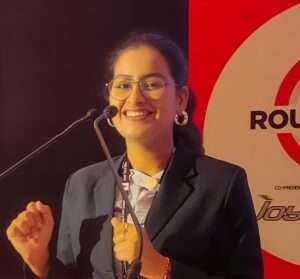1. Life Sketch
1.1. Works of Lenin
2. Philosophy of Lenin
3. Dialectical Materialism
4. Socialist Ideology.
5. Views on Party
6. Imperialism as the highest stage of Capitalism
7. Supplementation and Extension of Marxism
8. Conclusion

Hey champs! you’re in the right place. I know how overwhelming exams can feel—books piling up, last-minute panic, and everything seems messy. I’ve been there too, coming from the same college and background as you, so I completely understand how stressful this time can be.
That’s why I joined Examopedia—to help solve the common problems students face and provide content that’s clear, reliable, and easy to understand. Here, you’ll find notes, examples, scholars, and free flashcards which are updated & revised to make your prep smoother and less stressful.
You’re not alone in this journey, and your feedback helps us improve every day at Examopedia.
Forever grateful ♥
Janvi Singhi

Give Your Feedback!!
Topic – Vladimir Lenin (Notes)
Subject – Political Science
(Western Political Thought)
Table of Contents
Life Sketch
- Vladimir Ilyich Ulyanov (Lenin) made Marxism a practical political creed in Russia.
- He was a rare combination of theorist and man of action, with keen intellect and interest in theoretical aspects of Marxian socialism directed toward successful socialist revolution.
- Focused on revolutionary tactics and techniques, especially the transition period from capitalism to socialism, contributing to theory neglected by Marx and Engels.
- Born in 1870 into a middle-class family; his father was a high school director, parents were progressive teachers.
- His elder brother was hanged at age 19 for involvement in a plot against Czar Alexander III, influencing Lenin’s revolutionary path.
- Received middle-class education: secondary school at Simbirsk, later attended University of Kazan and St. Petersburg University, admitted to the bar in 1892.
- Came under police supervision due to early political activities; maintained illegal political contacts.
- Became an active organizer of radical working-class groups in St. Petersburg.
- Arrested in 1895, spent 14 months in prison, continued revolutionary work from prison cell through letters and pamphlets.
- Worked on “The Development of Capitalism in Russia” during imprisonment.
- Exiled to Siberia in 1897 for three years; continued political and philosophical studies, maintained contacts with revolutionary groups.
- Married Nadezhda Krupskaya in 1898; home became headquarters for political exiles.
- Participated in recreational activities: hunting, ice-skating, hiking, chess.
- Adopted the name “Lenin” from the Lena River in Siberia.
- After exile, organized the League of Russian Revolutionary Social Democrats, founded Iskra journal, editorial office moved to London.
- Introduced to Trotsky in London; worked to oppose moderate socialist elements.
- In 1903, led the Bolshevik faction, advocating “pure revolutionary action without compromise”, became the majority faction of the Social Democratic Party.
- Believed that in any revolution, exploiters resist the majority: “a long obstinate, desperate resistance of exploiters”.
- October 24-25, 1917, Bolsheviks seized Winter Palace and government buildings, overthrowing Kerensky’s provisional government.
- With dictatorship established in November 1917, Lenin became acknowledged leader of the Bolsheviks.
- Known for revolutionary intrigue and theoretical analysis, linking life, analysis, and enactment of revolution.
- As a theorist, recognized for analysis of revolutionary tactics and study of imperialism.
- Remained most powerful individual in Russia until illness in 1922; died on January 21, 1924.
- Returned to Russia during the 1905 Revolution, then lived in Finland, Switzerland, and France, studying Marx and Engels.
- Interned in Austria during WWI, released, then stayed in Switzerland until April 1917.
- With German assistance, returned to Russia; issued April Theses calling Bolsheviks not to support provisional government.
- Advocated for “peace, liberty, bread and land” for workers and peasants, convincing them of provisional government’s failure.
- Sensed conditions ripe for second revolt in October 1917, led Bolsheviks and Trotsky, gained support from Soviets, soldiers, sailors, and working men.
- Bolsheviks executed carefully laid plans and consolidated power within hours.
Works of Lenin
- Lenin’s most important work: What Is to Be Done?
- Distinguishes between organization of workers and organization of revolutionaries.
- Workers’ organizations: trade-union character, wide as possible, public where feasible.
- Organization of revolutionaries: small, professional, secretive, composed of professional revolutionaries regardless of social origin.
- Lenin argued that class consciousness cannot develop spontaneously; it must be brought from outside the economic struggle.
- Professional revolutionaries must be “no less professionally trained than the police”, decentralized, and capable of supervising legal workers’ organizations.
- Most influential political work: State and Revolution
- Focuses on political power and the state, neglected by Marx and Engels.
- Denies compatibility of capitalism and democracy; communism requires revolutionary dictatorship of the proletariat.
- Democracy under capitalism: “for the minority, the possessing class, the rich”.
- Describes techniques used by the capitalist state to maintain power.
- Important philosophical work: Materialism and Empirio-Criticism
- Examines materialism, dialectics, and the relationship between Marxism and science.
- Critiques Hume and Kant; appeals to Diderot, French Encyclopedists, and Feuerbach.
- Emphasizes social existence determines consciousness, not vice versa.
- Viewed as repetitive, dogmatic, reflecting strict economic determinism, lacking subtle Marxist nuance.
- Key economic-political work: Imperialism, the Highest Stage of Capitalism (1916)
- Defines imperialism as the final stage of capitalism, fulfilling Marx’s theory.
- Industrial units grow, combine in trusts and cartels, forming monopoly capitalism.
- Banks dominate industry, creating finance capitalism, which is expansionist.
- Consequences of imperialism:
- Exploitation of colonial peoples.
- Wars between nations due to international competition for markets and territory.
- Eventual overthrow of capitalism and rise of proletarian class rule.
- Political theses and reports
- Theses and Report on Bourgeois Democracy and the Dictatorship of the Proletariat:
- Denies any neutral or general democracy; all bourgeois democracies are dictatorships of capitalists.
- Criticizes democratic socialists seeking a middle path, labeling them as petty bourgeois reactionaries.
- Theses on the Fundamental Tasks of the Second Congress of the Communist International:
- Advocates right of the minority to lead the majority, even post-dictatorship of the proletariat.
- Majority of workers cannot develop socialist convictions spontaneously due to:
- Capitalist control over thought and opinion.
- Internalization of capitalist ideology (‘superstructure’).
- Only after overthrow of capitalist institutions can workers adopt proper proletarian ideology, overcoming selfishness, disunity, and vices created by private property.
- Theses and Report on Bourgeois Democracy and the Dictatorship of the Proletariat:
Western Political Thought Membership Required
You must be a Western Political Thought member to access this content.
